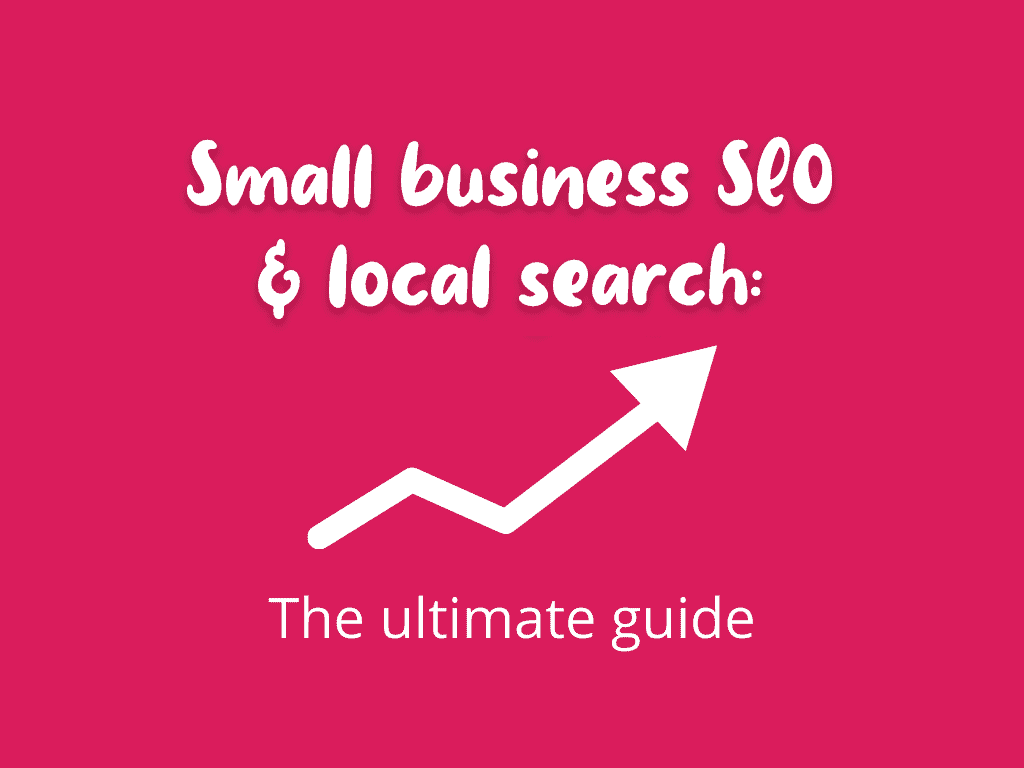
Small business SEO and local search: the ultimate guide
Ranking factors
When it comes to ranking on search engines deciding factors that are taken into consideration are:
- If your website is of a good standard
- Your location and if it’s close to the searcher
- If what you can offer is relevant to what the person is searching for
- If you have an excellent online reputation and presence.
Top 10 tips on how to optimise your SEO process
Step 1: Focus on making a good website.
No website is perfect – but it should meet specific standards. Aspects that contribute to a good SEO and user experience perspective are site structure, loading speed and security.
Step 2: Let Google know your location.
To help Google understand the location of your business and put you in the correct local results, it’s essential to have up-to-date contact information in all the right places, including your website and Google My Business listing.
Step 3: Make a contact page.
Aside from search engines, your customers must know how they can contact you details in places where users would expect to find them.
Step 4: Local business data
Many factors influence business SEO, such as NAP, which stands for Name, Address, Phone number. Local business details such as addresses, phone numbers, geo-coordinates and opening hours should be correct at all times so that locals can access them.
Step 5: Set up ‘Google my business
This is a great tool to use as it allows you to create a free profile to help promote your business via the search result option. This helps make you easily recognisable via google, possibly resulting in more traffic.
Step 6: Work on making great content
This will help your business get a significant boost, especially if you’re a blogger, as this gives readers a chance to get to know you and topics that interest you.
As well as writing about your interests, it is also essential to consider what your users want to read about.
Step 7: Make content that is not only readable but is also engaging – have fun whilst writing – it shows!
Writing as you speak is an excellent way to do this as it enables readers to read in your voice, increasing your relatability factor. Carefully considering the type of language and the tone of voice you use is essential for implementing this.
Step 8: Create Mobile-Friendly pages
Due to the surge in mobile searches in the last few years, ensuring sites are catered to is essential and a bonus. With NAP (Name, Address and Phone) considered, search on mobiles can help track a user’s location, enabling your local information to rank higher in search results.
Step 9: Focus on creating quality content
Having a blog on your website is an excellent way to make sure that your website is filled with quality content and give your site a bump in search rankings.
Don’t just write about yourself—educate and entertain your audience. There are plenty of ways to create unique content that helps you rank higher on search engines. Once creativity hits, you’ll have lots to write about.
Step 10: Organisation
This helps you focus on goals specifically related to your blog. Having a plan and clear intention for your SEO blogging is vital as it helps give a sense of direction and structure and keeps tabs on performance and engagement.
SEO aspects small businesses should consider:
- Budget – Your budget may be more stretched as opposed/ in contrast to established competitors.
- Speed – SEO can take a long time to deliver results, especially within a competitive sector.
- Competition from ads – Advertisements now occupy a lot of screen space -making them a strong contender.
- Big competitors – Some search terms are dominated by the big companies making it hard to compete.
Some SEO tools to consider:
- Having a good SEO audit platform – The benefit of this is that it improves your site’s overall performance because it flags any issues that your site has – this should be completed regularly to contribute to the optimisation of processes.
- Keyword search– This can be done to provide various solutions to commonly asked questions. It is a powerful tool for identifying prospective customers’ questions, making it easier to target them.
- Researching your competitors – What better way to utilise search engines by identifying competitors and where they rank within your industry? This helps give you further insight into what your peers are doing, allowing you to evaluate their processes.
- Utilise tools that do it all, such as Majestic and Ahrefs – This will give you further insights on connections to your competitors and directions for relevant links.
Conclusion
It’s clear to see that SEO is undeniably one of the most effective weapons for digital marketing for small businesses. Polishing such skills can help a business actively grow and build a broader audience that develops organically.
Implementing local SEO strategies may seem challenging initially, but it’s less complicated than some small businesses think. With the right tools, resources, and expertise considered, the process can be much more straightforward than portrayed.

